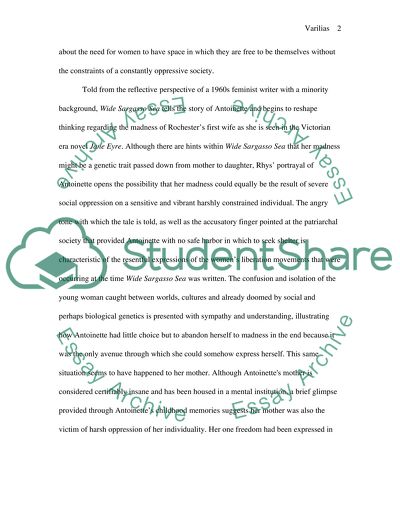Cite this document
(“The Female Condition in Women's Literature Research Paper”, n.d.)
Retrieved from https://studentshare.org/literature/1422696-research-paper-wide-sargasso-sea
Retrieved from https://studentshare.org/literature/1422696-research-paper-wide-sargasso-sea
(The Female Condition in Women'S Literature Research Paper)
https://studentshare.org/literature/1422696-research-paper-wide-sargasso-sea.
https://studentshare.org/literature/1422696-research-paper-wide-sargasso-sea.
“The Female Condition in Women'S Literature Research Paper”, n.d. https://studentshare.org/literature/1422696-research-paper-wide-sargasso-sea.


